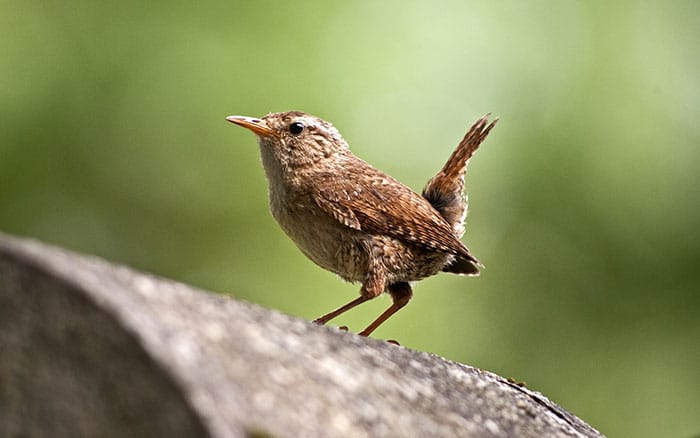Fat balls for birds
If your garden provides food, water and shelter, birds will feel right at home in your garden. Making some adjustments to ensure your garden is welcoming and enticing couldn’t be easier, using everyday household items.
Birds are valuable ecologically for their roles in seed dispersal and pest control, but they also provide a less tangible benefit to humans. Research has shown that there is a correlation between the number of birds and lower levels of stress, anxiety and depression in the local community.
Food for thought
Everybody benefits from inviting birds into your garden. By providing a safe space for birds to nest, get food, drink and wash, you have the excitement and wonder of spotting which birds are visiting your garden. You’ll hear the chirps and birdsong of different species which is fun for the whole family. See if you and the kids can notice patterns and recognise which are your frequent visitors. Research by Exeter University suggested that people react more positively to ‘songbirds’ than to other species.

Your new visitors will reward your hospitality by being great insect and weed control. Wrens and treecreepers are insect-eating birds, that will feed on little creatures that they find in crevices in the bark. On the other hand, finches, sparrows and buntings are generally seedeaters, eating a variety including grasses. This will benefit your garden by controlling the weeds spreading.
Keeping birds coming back means your plants will keep flourishing and flowering as they are a crucial part of the pollination process.
What to do
You can make food for your garden birds at home. Fat balls are great at supplying vital fat sources for their diets, keeping birds warm over winter.
You will need:
- Lard
- Bird seed
- Mixing bowl
- String
- Old, clean yoghurt pot or small container
STEP ONE
I like to combine dried cranberry, pumpkin seeds, muesli and mealworm for the seeds. If you would rather buy it already prepared you can get it from garden centres or pet shops. Ensure you don’t use dried coconut or cooked oats, as these can be harmful to birds.


STEP TWO
Using the large mixing bowl, use your hands to mix together the bird seed and lard. The lard will bind all the seeds together, so make sure the seeds are spread evenly throughout.
STEP THREE
Either mould spheres or get creative with your shapes that will hang from the string, alternatively, you can push the mixture into the yoghurt pots.
For the balls, split the ball in half and insert the knotted string so it is embedded and press the ball back together.
If you’re opting for yoghurt pots, make a hole in the bottom of the pot and tie the string so the pot can hang upside down and fill the pot with the seed & lard. Get creative and use a tea-cup as a container to add some more character.


STEP FOUR
Once finished, keep the balls in the fridge for a few hours until they become hard and they are ready to hang.
Pick a tree or shrub that bird can get to easily or put them in a bird feeder, ready to be eaten.
The fat balls will keep the birds coming back for more. Remember to put fresh water out for birds to keep hydrated and wash in. If possible, place a bird box in your garden which will encourage even more birds to come and stay in your garden.
Remember, if you’re unsure what you can feed them (during nesting season, for instance, you should avoid large nuts which are unsafe for young birds), you can always find out more on the RSPB website.
All that’s left to do is wait and identify the curious creatures that start to appear.

Leave A Comment